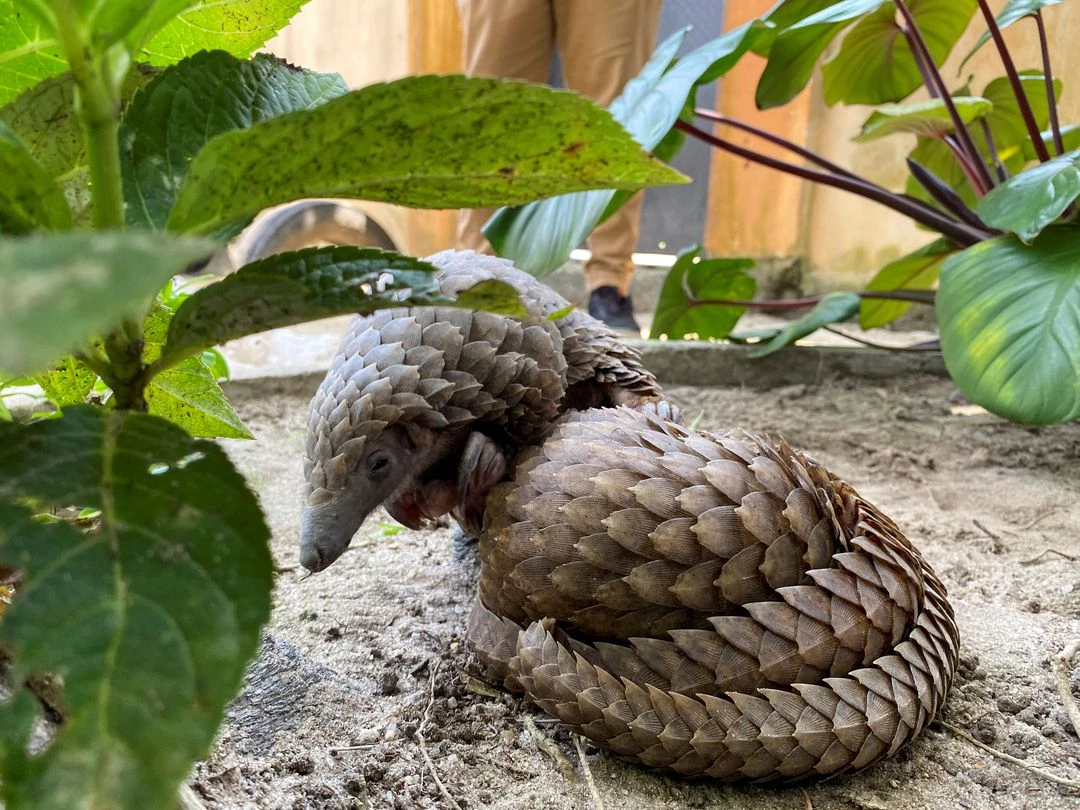Chinese-Listed Companies Exploited Endangered Animal Parts As Ingredients
EIA has uncovered that three Chinese drugmakers utilized parts of endangered animals in their products
 Source: Google
Source: Google
The report has prompted the London-based EIA to call on investors, including major banks, to divest their stakes in these companies.
The investigation identified 72 firms, with the aforementioned three implicated in using body parts from threatened leopards and pangolins in at least 88 traditional Chinese medicine (TCM) products.
Despite these findings, Beijing Tong Ren Tang and Tianjin Pharmaceutical Group have not responded to inquiries, while Jilin Aodong Pharmaceutical Group remains unreachable for comment.
The EIA's report emphasizes the urgency of action to curb the use of endangered species in traditional medicine practices.
This practice has drawn criticism from many experts
 Source: Google
Source: Google
Traditional Chinese medicine (TCM) manufacturers, including the ones identified by the Environmental Investigation Agency (EIA), frequently promote the supposed effectiveness of ingredients derived from endangered animals, proudly featuring them on their product packaging.
This practice has drawn criticism from Avinash Basker, a legal and policy specialist for EIA, who expressed disappointment.
"It's particularly disappointing to see so many major banks and financial institutions effectively endorsing this damaging exploitation," he said. "They need to divest from TCM manufacturers using threatened species at the soonest opportunity."
He highlighted the need for responsible and ethical investment practices to address environmental concerns and protect endangered wildlife.
62 financial institutions have investments in at least one of these three pharmaceutical firms
 Source: Google
Source: Google
According to the Environmental Investigation Agency (EIA), 62 financial institutions, including major names like HSBC Holdings, UBS, Deutsche Bank, Citigroup, and BlackRock, have investments in at least one of these three pharmaceutical firms.
The EIA reported that some investors, such as Wells Fargo & Co., claimed to have divested from funds associated with TCM firms or sold their shares in these companies.
HSBC Global Asset Management Canada and Royal Bank of Canada clarified to the EIA that their investments were limited to passive or tracker funds.
UBS informed the EIA that its shareholdings were on behalf of clients, while Deutsche Bank, HSBC Holdings, Citigroup, and BlackRock did not respond to queries from the environmental group.
 Source: Google
Source: Google
DWS, the asset management arm of Deutsche Bank, stated that it has no exposure to the three drugmakers through its actively managed funds.
The spokesperson emphasized the importance of engaging with issuers and index providers for achieving ESG improvements, without specifying the bank's holdings via passive funds.
Citigroup's involvement primarily revolves around client-related activities rather than proprietary investment, according to a source with direct knowledge of the matter. Citigroup declined to comment on the issue. BlackRock also declined to comment.
The activist group urged to prohibit the use of endangered animal parts for commercial purposes in domestic markets
 Source: Google
Source: Google
The activist group urged the Chinese government to prohibit the use of endangered animal parts for commercial purposes in domestic markets. However, China's National Medical Products Administration did not respond to Reuters' request for comment.
China amended its Wildlife Protection law in May, banning the trade of most wild animals for consumption as food, although permits for breeding and use can still be issued in certain circumstances.
Related Articles
- Gorilla Tries To Run Into Cold Water, Regrets It, And Then Acts Cool As If Nothing Bad Happened
- The Heartwarming Tale Of Gentle Outcast Cat's Journey From The Streets To Loving Home In NYC
- Cat Left Behind In Apartment When His Family Moved Is Happy When Finally Adopted After 5 Months Of Waiting
- Man Out Paddle Boarding Suddenly Realizes He Has Chance Encounter With A Very Curious Manatee
- Woman Finds Flowers All Over Bedroom Every Day - Then Relizes They Were Left By A Secret Admirer
- This Man Stops To Rescue 'Angry' Animal In The Road—And Ends Up Making A Friend
- Photographer Spots A Haunting Face Pleading For Help On Beach
- Shoppers Are Completely Stunned As They Spot A Face Pleading For Help At Store’s Glass Door
- Couple Adopts Bulldog Who Looks Similar To Their Pet and Gets A Big Surprise
- Man Sets Up Owl Nesting Box, Then Surprisingly Discovers Fluffy Visitor Inside